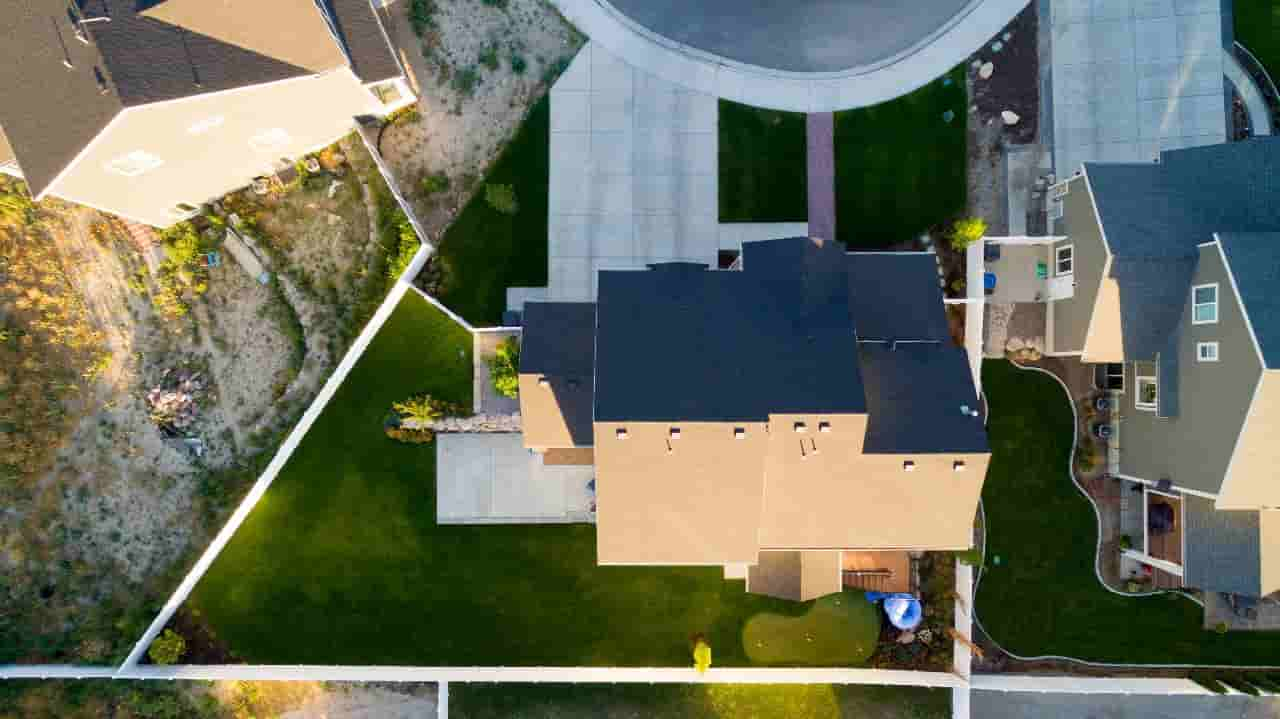In order to qualify for a home loan, borrowers need to meet the financial qualifications. This can include having an income that can support their monthly payments and provide proof of long-term stability. The guidelines can vary based on the type of loan as well as with each lender individually. However, many wonder can passive income be used to qualify for a mortgage?
Passive income can be used to qualify for a mortgage by some lenders. Passive income accepted includes stocks, dividends, or rental property. Your passive income can be used to help make up the difference if you don’t have enough money coming in directly from your job.
Which Income Qualifies for a Mortgage?
When it comes to qualifying for different types of home loans and how much money you can make from your job, what qualifies and what doesn’t can vary between lenders. There are many steps to get a mortgage loan for a borrower.

While some may require you to show proof of stable employment with regular paychecks before they can consider your application, others can take things like rental property income into account when qualifying you for a mortgage.
What Income Is Used to Qualify for a Mortgage
1. Employer Income
- Paychecks from a full-time job, including bonuses and commissions
2. Rental Property Income
- Receiving income from renting rooms in your house or property you own can provide proof of income.
3. U.S. Savings Bonds
- The interest can be reported annually on IRS tax forms, then used for qualifying purposes when applying for a home loan.
4. Retirement Income
- Pension Funds
- 401k Plans
- Annuities
5. Investment Income
- Stock Investments
- Dividends
Additionally, self-employment income can sometimes be used to qualify for a mortgage. Knowing how to budget for self-employment income is key for trying to qualify for a mortgage this way.
If you can’t afford a mortgage with your current income, it’s possible that passive income can help make up the difference.
A lender can consider factors other than just what you’re bringing in from your paycheck when considering giving you a loan. For example, those funds can be considered if you own rental property and make money off rent each month. Passive income requirements are pretty similiar between mortgage bankers vs. mortgage brokers.
However, some lenders won’t allow this type of income to qualify for a home loan because they want to see proof that the person can pay their bills on time before approving them for any financing.
What is Passive Income
To know if passive income can be used for mortgage qualification, you first need to understand what it is. Passive income can be many things. It can come from rental properties, stock dividends, or something similar. While passive income can help supplement your overall earnings, not all lenders allow it to be used in the qualification process.
Instead, lenders want to ensure that you can support your loan and maintain a stable career for at least 2-3 years before applying. You don’t necessarily have to be at the same job for three years, but you should be employed in the same industry at a minimum if you have switched positions.
Some Examples of Passive Income
A lot of things can qualify as passive income. The most popular forms of passive income would include investment profits from stocks, bonds, and mutual funds. Additionally, smart passive income streams can also manifest as capital gains. Including rental properties can be another good way to go about it. Lastly, there is the option of short-term trading in securities such as Forex or futures.
Investment Profits from Stocks, Bonds, and Mutual Funds
This type of passive income can be the most flexible and can apply to almost any circumstance. Using investment profits can be used as a substitute for income in some cases. If you invest in real estate crowdfunding, those profits can also be counted towards down payments and can even include interest from bank accounts that can be withdrawn at any time without penalty.
Rental Properties
If you are a section 8 landlord or have rental properties, these can help reduce the money borrowed for your new house. However, this could depend on if the rent covers all expenses such as property taxes and insurance or not.
Since these can’t easily be added together, many lenders will only count taxable profits from rental properties as passive income. You can, however, exclude up to $250,000 in secured debt tied to investment properties if you are using it as security against the mortgage loan.
Short-Term Trading
Most lenders don’t count options vs. futures short-term trading as passive income unless it can be shown that you can earn an average of at least $400 per month from your efforts.
While this can include many different types of investments, the most common trade is through Forex currency trading. This can allow people to take advantage of changes in the value of one country’s currency versus another. Many people have learned how to make a living by trading Forex and use it as their primary form of income.
How to Use Passive Income to Qualify for a Mortgage
You can use passive income in two ways to qualify for a mortgage. It can be counted as part of your assets, and it can also be used to reduce the amount of money you’re borrowing.
Count Passive Income as an Asset
Let’s look first at how passive income can be counted as an asset. You can count up all the money you have in:
- savings accounts
- CD’s with interest
- stocks or shares that pay dividends
- mutual funds or rental properties that earn rent every month
Add all those together, and that is your total passive income. When lenders say they want borrowers to have six months of cash reserves, they mean six months’ worth of this kind of money that can be quickly turned into cash in an emergency.
Since this kind of money earns little or no interest, you can’t count it towards your income when figuring out how much to borrow.
Use Passive Income to Reduce the Mortgage Amount
You can also use passive income to reduce the amount of money you can borrow for a mortgage. It can be used in two different ways:
- It can be counted as part of your monthly income, reducing the maximum amount you can borrow. (See outstanding balance vs. principal balance).
- It can be counted as part of your assets (as stated above) and therefore make up some or all of what’s called the down payment on the mortgage.
Down payments on a mortgage can range anywhere from 3.5 percent to 20 percent. Every lender has different rules on how much of a down payment can be made. There are also a lot of ways how to save for a down payment for a house fast. To qualify for the best rates, most lenders want at least five percent coming from the borrower’s pocket, and the rest can come from other sources such as gifts and grants.
Use Passive Income to Qualify When You Have a Spouse at Home
Another situation where using passive income can be beneficial is when someone has a spouse who doesn’t have full-time employment. If the income can be shown to be enough, it can help increase your chances of qualifying for a home loan.
This is especially true when you have rental income, which can be challenging to replace if it can’t be used as part of your income. Getting advice on your household income is part of the pros and cons of hiring a personal accountant. Your best bet, though, is to talk to a lender who can tell you how much they are willing to count from each source.
Use Passive Income to Qualify When You Have Low Income
If you have low income, passive income can also help you qualify for a home loan. Certain debt-to-income ratios can be used when qualifying for a home loan. To figure out how much money can be borrowed, income can be divided by the total of all monthly debts, including car loans, credit card bills, and other debt.
If you have very little or no income, some lenders may use 0 percent as the allowed ratio, while others might go as high as 50 percent. If your tentative proportion of loan balances to loan amounts is too high, underwriting may not grant a new mortgage, however.
Some lenders are also using an “effective” income when figuring out how much can be borrowed. In this case, they add up the borrower’s salary with any potential passive income he could earn each month, such as from rental property, to develop the effective monthly salary before adding in any debt load.
Consider Mortgages with Low APRs
Consider mortgages with very low APRs if you want to use only your passive income to make your mortgage payment. These mortgages would include ARM’s or adjustable-rate mortgages and interest-only mortgages.
ARM’s:
This can be a good idea if you don’t plan to stay in your new house very long. These low adjustable-rate mortgages have the interest rate locked for a certain number of years. After that, the interest can adjust up or down depending on what rates are doing when it’s time to refinance your mortgage.
Interest Only Mortgages
An interest-only mortgage can also make sense when you are planning to sell your house soon. These mortgages can also be good options for people who can’t qualify for a regular 30-year fixed-rate mortgage because they don’t have enough income or money in the bank.
However, these mortgages can be risky as there is no payment reducing principal during those years, and your loan can end up costing more than if you had bought a traditional type of home loan.
Benefits of Using Passive Income to Qualify for a Home Loan
The benefits of using passive income can make it much easier for you to qualify for a home loan. Even if you are using it to buy a house with Chapter 13 bankruptcy in your past, there are advantages.
The biggest advantage can be that you can use income that might not normally be counted as part of your total monthly income.

You Can Buy in Better Neighborhoods
By moving this extra money around, lenders can treat it as if you had earned more than what was actually received. Therefore lenders can increase how much they are willing to lend. This ultimately leads to a higher mortgage loan limit, allowing you to move into a better area or neighborhood.
Better neighborhoods also help your home investment in the long run because they can increase the value of your home to an amount that can exceed the loan limit you received based on your income. This can allow you to make money back on your home if and when you decide to sell it.
Buy Investment Properties Passively
Passive income can also be used for buying investment properties. By earning rental profits on multiple properties can increase your ability to borrow money. Making the right investments can also help you qualify for loans that are much higher than what can generally be expected from using only your regular income.
Investing in Real Estate can make passive income even more profitable. It can lead to a rise in property value relative to the amount of money borrowed on them, which can increase home equity and help with monthly mortgage payments.
Use Regular Income for Paying Down Debts
By using passive income to qualify for a mortgage, you can use your regular income for paying down debts that can help reduce your debt-to-income ratio. This can ultimately improve the rates you can qualify for and get the best situation possible when buying a house.
Additionally, you can learn how to build wealth from nothing once your debts are settled and continue to use your passive income for your mortgage.
If you have more passive income than your mortgage payment, you can even pay additional towards your principal mortgage balance and pay off your mortgage early.
Get Considerably Higher Loan Amounts With Passive Income
Additionally, another advantage can be the loan-to-value ratio can go up so you can borrow more money. Some lenders can also consider how much can be borrowed on a property as part of the alternative minimum tax or AMT calculation. This can allow you to get around specific limitations that can generally prevent people from getting bigger loans.
For example, if your current income isn’t enough to qualify for a larger loan amount but has passive income, it can help raise your overall creditworthiness. Passive income can make it possible for you to get a larger loan than expected.
Other Strategies How to Make Passive Income Work to Buy a House
Some lenders can use the passive income to qualify for a loan; others can’t. If your lender tells you that they can’t qualify you for a mortgage with passive income, there are other options besides a mortgage. Make sure you know the mortgage process if its your first mortgage your applying for.
Take Out a Personal Loan and Buy the House With Cash
Other options are to take out a general personal loan to purchase a house directly with cash. The great thing about this is that there are no mortgage payments to make. Also, if you can qualify for a bigger loan than what the house is worth, you can easily pull enough money out of your investment and put it towards buying the home without paying interest on it.
Pay on a Land Contract
You can use your monthly passive income to pay on a land contract. You can purchase a house with a land contract and can own it without making any mortgage payments. You can also get an individual personal loan to pay off the land contract and can make your monthly payment into that.
Look into Mortgage Loans From Foreign Banks
Check to see if your passive income can be used to qualify for a mortgage through banks in other countries. Knowing how to get a mortgage loan from a foreign bank is beneficial. This can also allow you to get around specific rules that can make getting a loan in the United States by using other means besides getting one domestically.
Take Out a Second Mortgage
Another option is to take out a second mortgage on your rental property. This will allow you to use it as collateral to get approved for another loan. If using something like this on investment property, at least 50% of the house’s value would be needed. However, do not borrow more than what the investment can produce each month after paying off expenses like taxes and insurance. You don’t want it disappearing into thin air through interest charges.
Get the Seller to Carry a Note
A seller can also carry a note on your real estate investment if they can’t sell it. You can get approved for this kind of mortgage and be paid back over time with interest like any other loan. This can also help you ease into the credit requirements needed when taking out a traditional mortgage in the future.
The Drawback With Using Passive Income On Your Mortgage
While it can reduce the amount you need for your down payment and lower your monthly payments, there are drawbacks to using passive income on your mortgage. The most common disadvantages include:
- changing tax implications
- can make it more difficult to qualify for future loans
- can add to your total monthly debt load
These can result in you not being approved for a loan even if your lender can use the passive income. Sometimes, this can be better than taking out a high-interest loan and using money from another source like savings.
However, you have to ensure that the house will make more than what you owe each month if using some financing. Otherwise, it can be a problem later on when you need to sell or refinance. Follow the best ways to invest 50k in real estate for profits.

Please note that these are just suggestions about how you can get around having passive income as part of your qualifications for buying a house. Underwriters will do their best to look over any situation and out what would provide the safest bet for the mortgage company.
However, as far as they are concerned, if you can’t prove that there’s enough passive income coming in to cover anything else besides your monthly payments, then it can be a problem.
Related Questions FAQs:
What Is the Best Mortgage to Qualify for Using Passive Income?
The best can depend on your situation. The two most common can be either a fixed-rate mortgage or an adjustable-rate mortgage. Fixed can have better rates and can stay the same throughout the term of it. Adjustable can start lower than fixed but can change later on based upon market conditions when interest rates go up again.
You may be able to qualify for both types using passive income as long as you can make minimum payments each month after all other expenses and loan payments are made.
How Much Passive Income Is Needed to Qualify?
It can vary from lender to lender. However, lenders usually want at least two times the monthly payment if taking out a traditional 30-year fixed-rate mortgage. You can also look at the overall total debt to income ratio and compare that with what you can expect from your passive income.
Is It Possible To Be Approved With Only Passive Income For Your Mortgage?
It can depend upon the particular lenders’ guidelines and requirements from one time to another. In contrast, some lenders might allow only passive income when a house. Others want two times the amount of what you can expect in passive income each month.
Please note that this can be different with investment properties since they can require more down payments and go up against other ratios to get approved for a mortgage.
What is the Advantage of Using Passive Income to Qualify for a Mortgage?
Having a passive income can allow you to get approved with less money down, lower your monthly payments, and make it so you can pay off your house faster. Additionally, passive income can help avoid private mortgage insurance (which can be challenging to qualify for later on) if having at least 20% equity in the home.
Conclusion
It cannot be an easy search to find the right mortgage. The best can depend on your situation and what you need for a house down payment, monthly payments, and current income. If you’re using passive income as part of qualifying, it can be harder to get approved because there needs to be enough coming in each month to cover any other expenses besides just the mortgage.
Using this type of financing can help with qualification, though if it’s at least two times what is expected from your regular monthly payments (which could change depending upon interest rates). You also need to make sure that whatever property or home has a value greater than what you owe on it every month; otherwise, it might not work out well when refinancing or selling later on.



